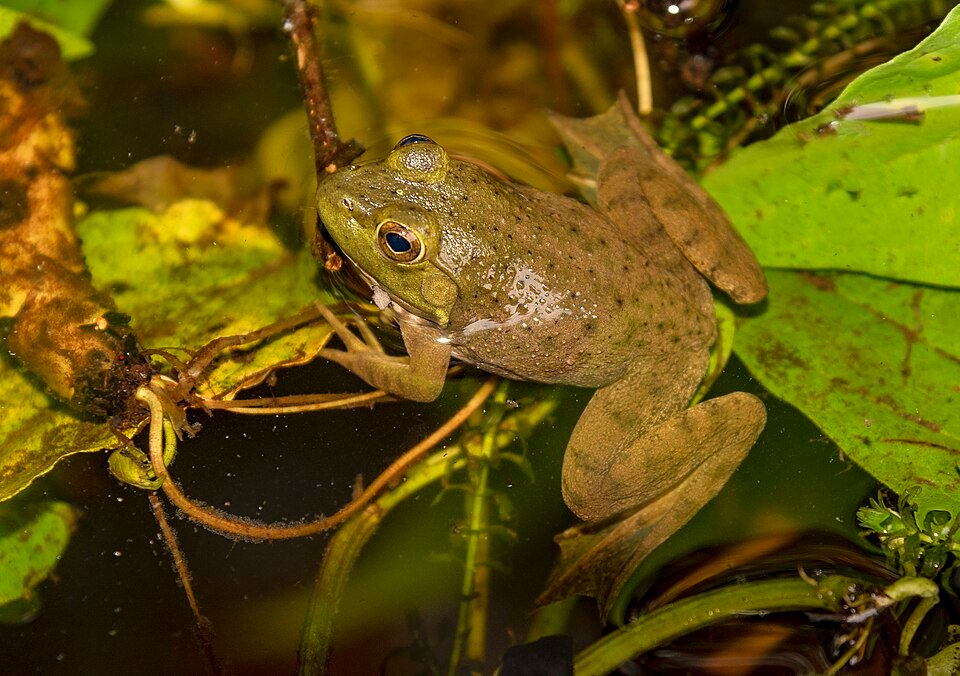USA.- The University of Arkansas at Pine Bluff (UAPB) Department of Aquaculture and Fisheries and the Office of International Programs and Studies (OIPS) recently participated in an international exchange program with the Centro de Formación Agroindustrial La Angostura (La Angostura). La Angostura is one of many training centers within the Servicio Nacional de Aprendizaje (SENA) network across the South American country of Colombia. The program’s goal was to educate students and faculty from both universities in the areas of fish disease diagnosis and value-added fish product development and food safety.
The aquaculture exchange program was funded by the “100,000 Strong in the Americas” Innovation Fund grant, sponsored by the National Association of Partners of the Americas, headquartered in Washington, D.C. UAPB was one of eight U.S. land-grant universities and community colleges to be awarded a grant under the Colombia/SENA funding initiative. The program is the result of an inter-departmental collaboration with OIPS that commenced in late 2016.
Dr. Pamela Moore, associate dean for global engagement, OIPS, said she hopes to continue to build upon the relationship established with La Angostura and looks forward to future collaborations of a similar nature with other departments on campus.
“UAPB does not have a program in value-added products for seafood, and La Angostura does not have a program in fish disease diagnostics,” Dr. Anita Kelly, associate director of the UAPB Aquaculture/Fisheries Center of Excellence and Extension fish health specialist, said. “This program expanded the knowledge of students and faculty from both institutions by exposing and training them in the respective areas.”
During the summer semester of 2018, a UAPB delegation visited La Angostura in Campoalegre, Huila, Colombia. There, four UAPB students of aquaculture/fisheries and three faculty and staff learned about value-added fish product development and food safety.
Student participants included Annette Fields, doctoral student, Nathan Egnew, graduate student, April Surratt, junior, and Brian Freeman-Rhodes, junior. Faculty and staff participants included Dr. Kelly, Dr. Herbert Quintero, Extension aquaculture specialist for the UAPB Lonoke Fish Disease Diagnostic Laboratory, and Oma Fukui, project program specialist.
The students and faculty from UAPB visited several tilapia farms and a tilapia-processing plant. They participated in value-added workshops, water quality and diagnostics labs and cultural activities.
“Students in Colombia had the opportunity to gain invaluable hands-on experience in the field of value-added products for fish processing,” Dr. Quintero said. “This type of training will help prepare them for careers in the industry.”
Stay Always Informed
Join our communities to instantly receive the most important news, reports, and analysis from the aquaculture industry.
Dr. Kelly said her biggest takeaway from the program in Colombia was how different aquaculture practices in Colombia are from those in the U.S.
“The ponds used in Colombia are small and most aquaculture facilities have their own processing plants,” she said. “Some of the techniques used to produce value-added products will be most useful for UABP staff and students since we lack that area of expertise.”
Annette Fields, UAPB instructor/counselor for the Office of Basic Academic Services, is currently earning a doctoral degree in aquaculture/fisheries at UAPB. She said learning first-hand about the industry in Colombia was an experience of a lifetime.
“As an instructor, I teach my students to think globally,” she said. “I share my experiences to inspire them to look beyond their current situation. This program has the potential to expand. I believe all majors could benefit from this experience.”
Fields said the exchange program highlighted the advantages of pursuing a career in the aquaculture/fisheries industry. She plans to use her new insights as she assists the UAPB Department of Aquaculture and Fisheries recruit underrepresented populations to the field.
“There was much to glean from the faculty at La Angostura in regard to the processing of fish into value-added products, as well as the cage culture of tilapia, something not common in Arkansas,” Egnew said. “Likely, I will be able to apply the things I saw during the visit to my future career as I intend to manage a production facility at some point.”
In October 2018, five students and two faculty members from La Angostura took part in a two-week training program on fish disease diagnosis at the UAPB Aquaculture/Fisheries Center of Excellence. The participants learned about water quality, fish anatomy and the diagnosis of parasites, bacteria and viruses in fish. Learning activities included tours of UAPB’s aquaculture/fisheries facilities, visits to local fish farms and surveys of fish populations through electrofishing.
“We wanted the Colombian students to see how different our aquaculture farms are from the ones we visited in Colombia,” Dr. Kelly said. “The disease diagnostic portion of the program taught the students how to identify common parasites and bacterial infections in fish, as well as the basics of real-time DNA determination of fish viruses.”
Dr. Quintero said the exchange program was beneficial to students and faculty of both universities.
“This program helps give a broader vision of the aquaculture industry in regard to species cultured, production systems, management practices, and most of all, to the culture in which those practices are embedded,” he said.
Source: UAPB News
Editor at the digital magazine AquaHoy. He holds a degree in Aquaculture Biology from the National University of Santa (UNS) and a Master’s degree in Science and Innovation Management from the Polytechnic University of Valencia, with postgraduate diplomas in Business Innovation and Innovation Management. He possesses extensive experience in the aquaculture and fisheries sector, having led the Fisheries Innovation Unit of the National Program for Innovation in Fisheries and Aquaculture (PNIPA). He has served as a senior consultant in technology watch, an innovation project formulator and advisor, and a lecturer at UNS. He is a member of the Peruvian College of Biologists and was recognized by the World Aquaculture Society (WAS) in 2016 for his contribution to aquaculture.






